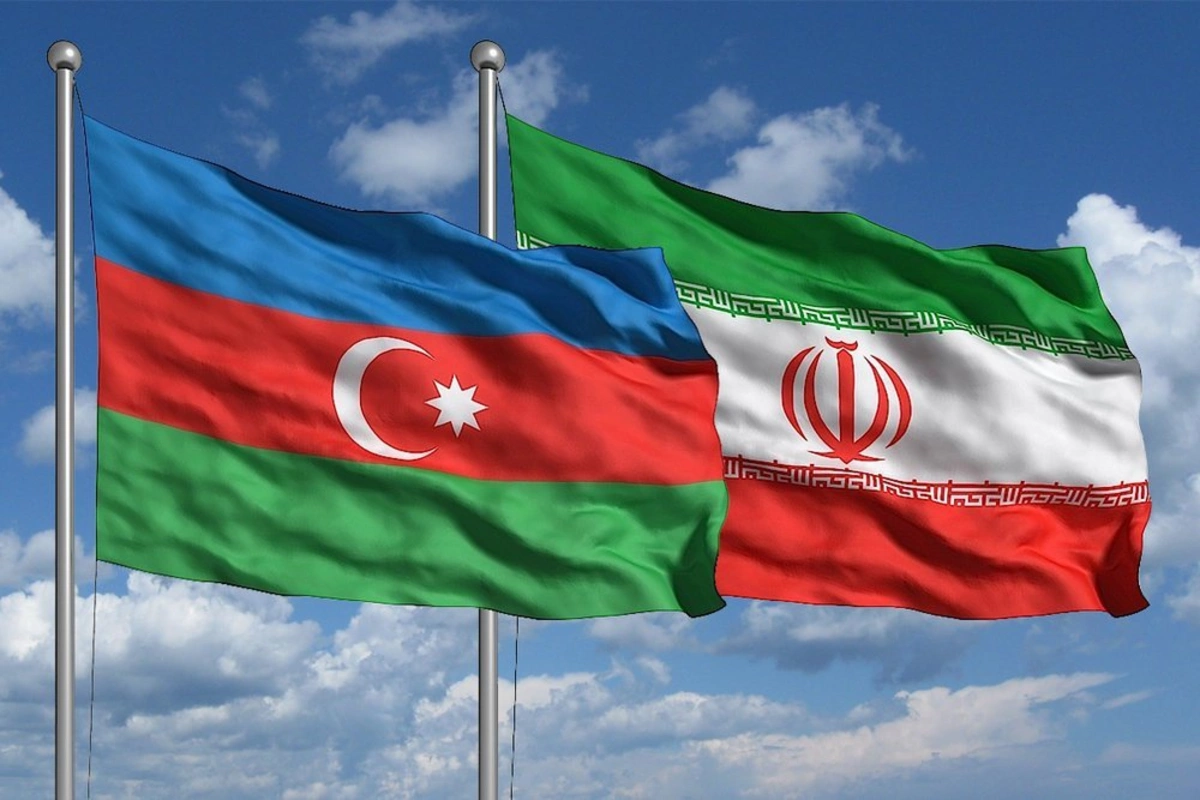
Photo credit: turkic.world
Following the recent visit of Iranian President Masoud Pezeshkian to Azerbaijan, relations between Baku and Tehran have entered a new and promising phase. The two neighboring countries, historically bound by deep-rooted ties, are now focusing on strengthening economic cooperation, regional security, and strategic connectivity projects. Against this backdrop, The Caspian Post spoke with Mohsen Pakaeen, Iran’s former ambassador to Azerbaijan and a distinguished political expert, to discuss the new opportunities for bilateral relations, the importance of transport corridors, and the prospects for joint investments between the two nations.
- What new areas of cooperation between Azerbaijan and Iran have been opened up following the signing of today's agreements?
Photo credit: Official website of the President of the Republic of Azerbaijan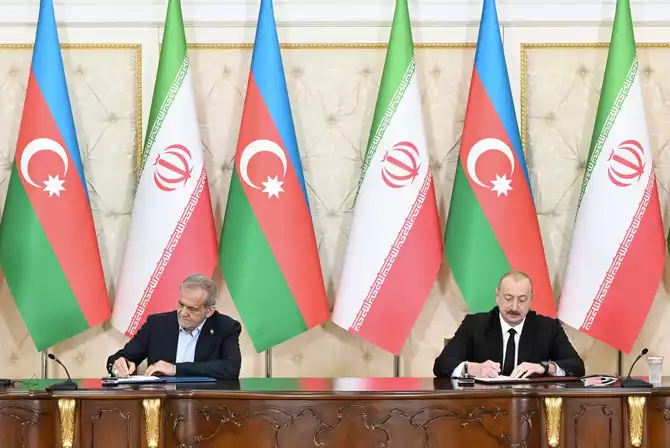
- Dr. Pezeshkian’s visit to Baku reaffirmed the strong bonds between our two neighboring countries, which share a long border and a rich history of friendship and cultural ties. Both sides are clearly committed to deepening their relations in a constructive and forward-looking manner. On the bilateral front, the recent meeting of the Joint Economic Commission in Baku, chaired by Minister of Roads and Urban Development Farzaneh Sadegh, highlighted the vast potential for cooperation. Azerbaijan and Iran can work closely in key sectors such as transportation, energy, trade, tourism, agriculture, and banking. Moreover, both countries can enhance coordination to address common security challenges, including terrorism, organized crime, and drug trafficking. Collaboration in science and emerging technologies can not only help address energy needs but also create new avenues for economic and commercial growth.
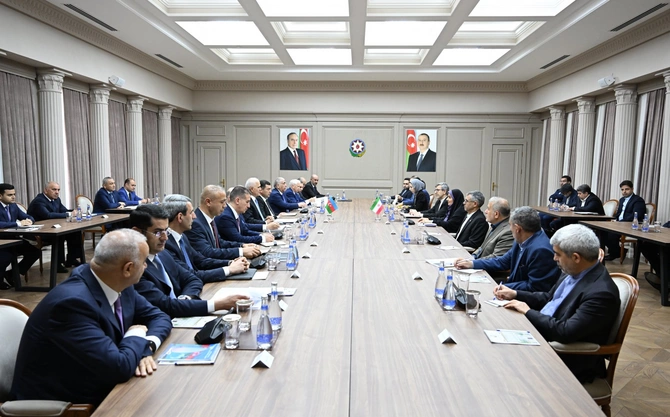
Shahin Mustafayev, Deputy Prime Minister of Azerbaijan met with Farzaneh Sadegh, Minister of Roads and Urban Development of Iran, during her visit to Azerbaijan on April 8/Photo: Cabinet of Ministers of the Republic of Azerbaijan
- How do Azerbaijan and Iran contribute to strengthening regional security and stability, particularly through their support for the sovereignty and territorial integrity of regional states?
- The regional situation has recently seen notable improvements, particularly between Azerbaijan and Armenia, following the liberation of Karabakh. These two neighbors of Iran are moving towards a lasting peace agreement based on mutual recognition of territorial integrity. Resolving the Karabakh conflict-a longstanding source of regional instability-represents a significant step toward lasting peace in the South Caucasus. A region once marked by tension is now showing signs of positive transformation, which in turn lays the foundation for greater economic cooperation. After all, investment flows where there is stability. It is against this backdrop that the Iranian President is visiting Azerbaijan-a visit that holds considerable importance. It not only bolsters bilateral ties but also sets a precedent for broader regional cooperation grounded in mutual interests. The current de-escalation between Azerbaijan and Armenia offers Iran and Azerbaijan-two key regional actors-a unique opportunity to embark on a new chapter of active diplomacy.
- What is the significance of the North-South and East-West transport corridor projects in terms of strengthening economic ties between Azerbaijan and Iran and for the region as a whole?
Photo credit; vajiramandravi.com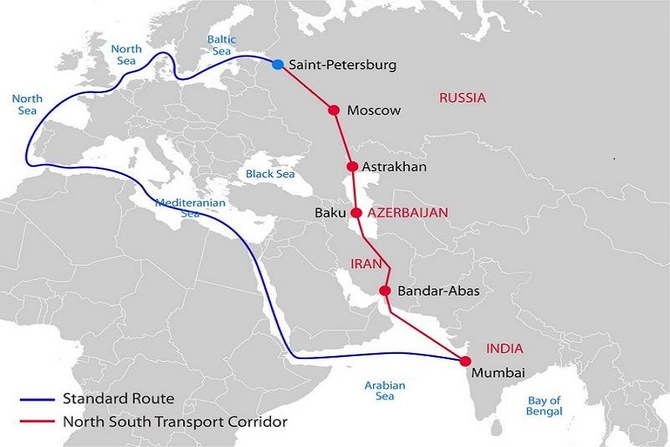
- The completion of the Rasht-Astara railway, the removal of customs and tariff barriers to facilitate trade, expansion of tourism links, exploration of joint oil fields in the Caspian Sea, and cooperation in rebuilding Azerbaijan’s liberated territories were among the key topics addressed during Dr. Pezeshkian’s visit to Baku. These initiatives are crucial for enhancing connectivity and economic integration not only between Iran and Azerbaijan but also across the wider region.
- What are the prospects for joint investments and the creation of joint ventures between Azerbaijan and Iran?
- There is significant potential for Iran and Azerbaijan to undertake joint investments, particularly in the energy sector given their shared coastline along the Caspian Sea. Both countries can work together to develop and utilize oil and gas fields using modern technologies and shared capital. In addition, there is room for collaboration in innovative energy solutions, especially in the field of renewables. Such cooperation aligns with the long-term strategies of both nations to improve energy efficiency and diversify their energy portfolios.
- What steps are being taken to increase trade turnover and deepen economic ties between the two countries?
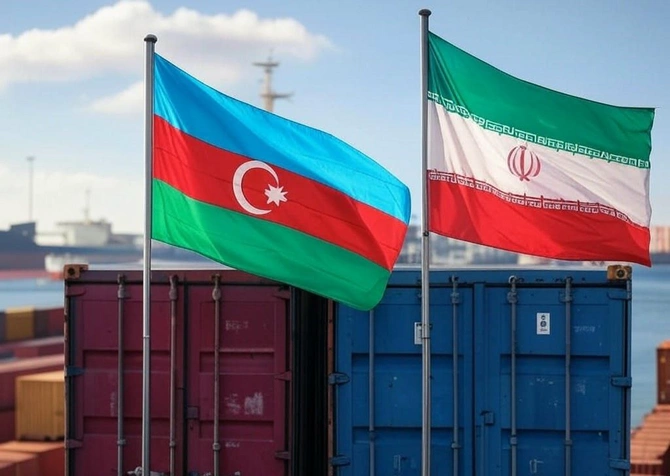
- Both Iran and Azerbaijan are seeking to diversify their economies and reduce reliance on fossil fuels. Expanding exports and imports is therefore a shared priority. To enhance trade ties, customs and tariff barriers must be eliminated, tourism links strengthened, border crossings simplified, and visa procedures facilitated. Cooperation in areas like extraterritorial cultivation can also be beneficial. Furthermore, Iranian engineering and construction firms, drawing on their extensive experience, are well positioned to participate in the reconstruction of the liberated areas, including Karabakh.
Share on social media